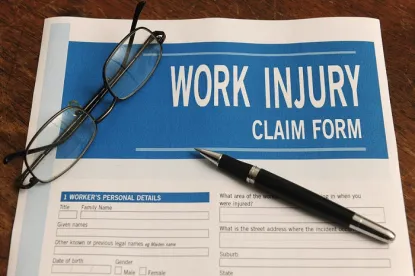Your organisation isn't in any industry covered by a modern award, and your employees do not fall within the few occupations covered by a modern award either – so this means they are award free, right? Unfortunately, in a system that is meant to be simple and easy to understand, things aren't that clear when it comes to the Miscellaneous Award 2010.
A recent decision by the Full Bench of the Fair Work Commission has demonstrated that:
-
the Miscellaneous Award covers more employees than previously thought
-
employees who have never been covered by an award in a particular state or territory may be covered if their work, or similar work, was covered by a pre-reform award elsewhere in Australia
-
even if no pre-reform award covered such employees, employees may not be award free unless there is some reason they are unsuited to award coverage.
Because of this, employers should once again take time to review whether their employees are really 'award free'. If employees are covered by the Miscellaneous Award, employers will need to consider whether employees are receiving the terms and conditions in that award.
What is the Miscellaneous Award
The Miscellaneous Award was made when the Australian Industrial Relations Commission modernised the award system in 2008-2010 by rationalising more than 6,000 'pre-reform awards' across Australia into just 122 modern awards.
The award:
-
covers employees not covered by any other modern award
-
covers employees not in an industry covered by another modern award
-
does not cover those who, “due to the nature or seniority of their role, have not traditionally been covered by awards”.
A widespread assumption is that if employees were not previously covered by pre-reform awards, then the Miscellaneous Award does not apply. But as the recent decision of United Voice v Gold Coast Kennels Discretionary Trust t/a AAA Pet Resort [2018] FWCFB 128 shows, the coverage question may not be this simple.
Full Bench decision
In this decision, the Full Bench of the Fair Work Commission heard an appeal from a decision that the employees covered by the AAA Pet Resort Enterprise Agreement 2017 were award free.
The employees were animal attendants in a pet grooming and boarding business in Queensland. This is not an industry or occupation covered by a modern award, and animal care employees had never been covered by an award in Queensland (outside of a veterinary practice). In an application for the approval of an enterprise agreement, the employer argued that in respect of whether the Award met the Better Off Overall Test (BOOT). They were not covered by any award, including the Miscellaneous Award. A single commissioner approved the agreement on that basis.
In an appeal from that decision by United Voice, The Full Bench overturned the approval, finding that the employees were covered by the Miscellaneous Award. In the course of its decision, the Full Bench clarified how the Miscellaneous Award coverage provisions operate.
In order to be excluded from the coverage of the Miscellaneous Award:
-
an employee must not have traditionally been covered by awards
-
the reason for this must be because of the nature or seniority of their role.
The Full Bench found that while animal care employees (outside of a veterinary practice) had not been covered by an award in Queensland, they had been covered in New South Wales, the Northern Territory and Victoria. It was also noted that in New South Wales, Queensland and Western Australia there had been awards covering employees performing similar basic animal care functions, albeit in the different context of a veterinary practice. The Full Bench rejected the argument that coverage varies between states and that the employees were not covered because they had been traditionally award free in Queensland.
Treating the exclusion even more narrowly, the Full Bench found that even if these animal care employees had not been traditionally covered, the reason was not due to their 'nature or seniority'. These were "lower skilled and modestly or low-paid employees of the type which ordinarily would be most suited to award coverage" and there was "nothing unusual about their employment which would render them unsuited to award coverage".
As a result, the decision in first instance was quashed on the basis that the BOOT test had not been applied by reference to the Miscellaneous Award and was remitted for redetermination by the original commissioner.
Who might be covered?
This decision opens up the potential for coverage by the Miscellaneous Award to a far greater range of employees than previously thought applicable. The Full Bench decision emphasises the following considerations for determining award coverage:
-
employers must consider not only the pre-reform awards that applied in their own state or territory, but all relevant pre-reform awards across Australia;
-
employees do not need to be performing the same work which was traditionally covered, but work of a similar nature. Pre-reform awards which were quite limited in the scope of their coverage may now provide a basis for extensive coverage by the Miscellaneous Award; and
-
it is not enough to rule out coverage if employees were not covered by any pre-reform awards. Employers need to consider why they were not covered – is there anything about the nature or seniority of the employees that makes them unsuited to award coverage.
This decision overturns assumptions (and the advice of the Fair Work Ombudsman) about how pre-reform coverage in one state might affect another. How far might coverage extend? There are many types of employees where award coverage was limited to a single state or territory. While The United Voice decision considered types of employees who had coverage across three jurisdictions, it has not been ruled out that the Commission will extend Miscellaneous Award coverage to employees who had limited pre-reform coverage in a single jurisdiction.
Further, even if employees had no coverage by pre-reform awards, the effect of the Full Bench decision is that it may be their work is of a similar type to employees who did have coverage and thus 'suited' to award coverage. This decision indicates that if employees are low-skilled or low-paid, the Commission is likely to consider that they ought to be covered by the Miscellaneous Award.
This will not be an issue for employers who are covered by an industry modern award, because the Miscellaneous Award also excludes employees who are "in an industry covered by a modern award who are not within a classification in that modern award". Employees who happen to fall outside of the industry award applying to their business will remain award free.
What does this mean?
It is important for employers to know whether their employees are covered by the Miscellaneous Award primarily because it sets minimum terms and conditions for those employees. The award covers unskilled to sub-professional employees, and provides among other conditions:
-
minimum wages
-
limitations on when ordinary hours may be worked and overtime rates for working in excess of those hours
-
penalty rates for working at night and on weekends.
We note that, if employees are paid sufficiently in excess of the minimum wage in the award, such wages may be offset against conditions like overtime and penalty.
Finally, if an employee is covered by the Miscellaneous Award, they will be protected from unfair dismissal regardless of how much they earn. They will also be entitled to consultation if the employer introduces a major change, such as a restructure resulting in redundancy.





 />i
/>i

